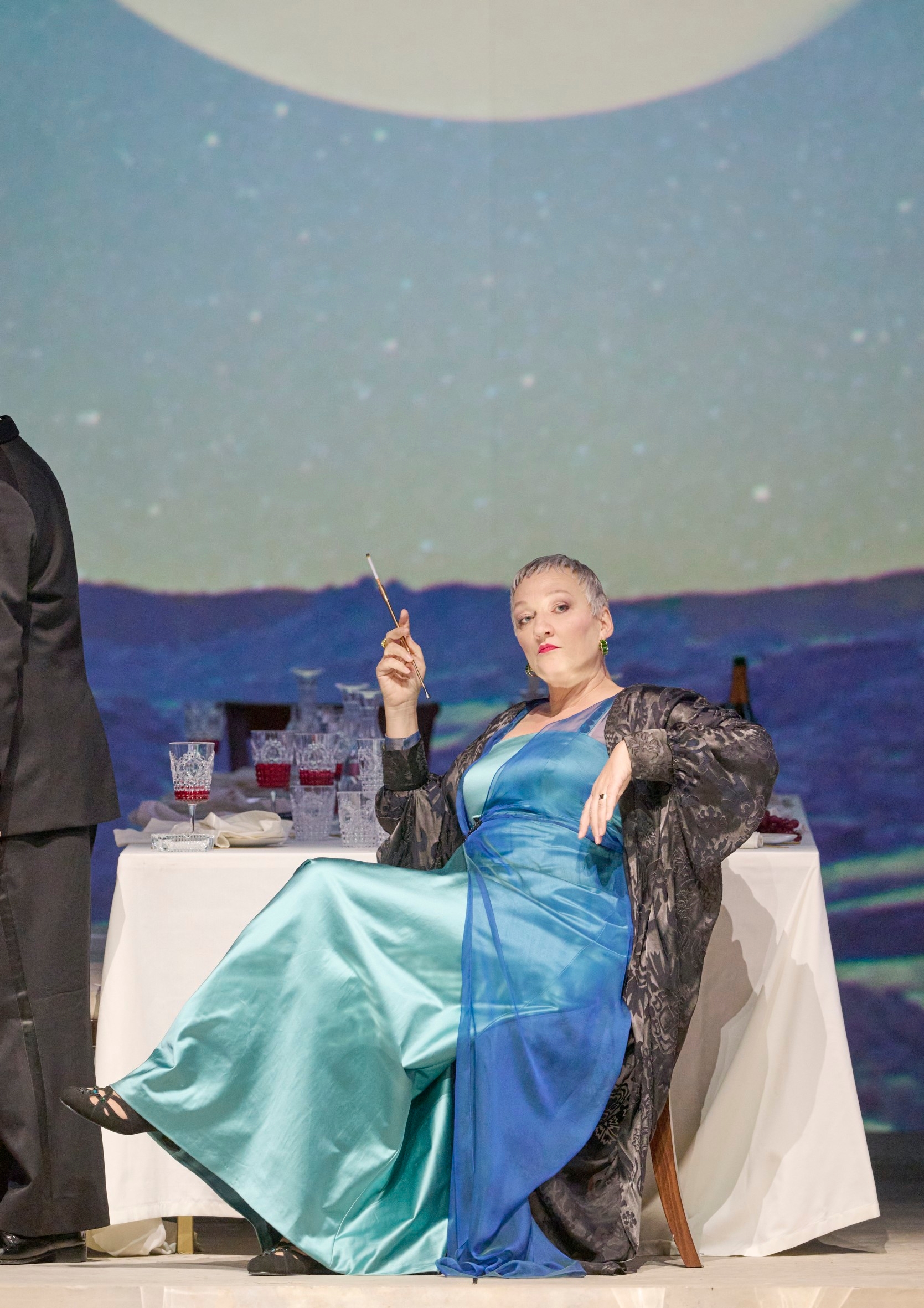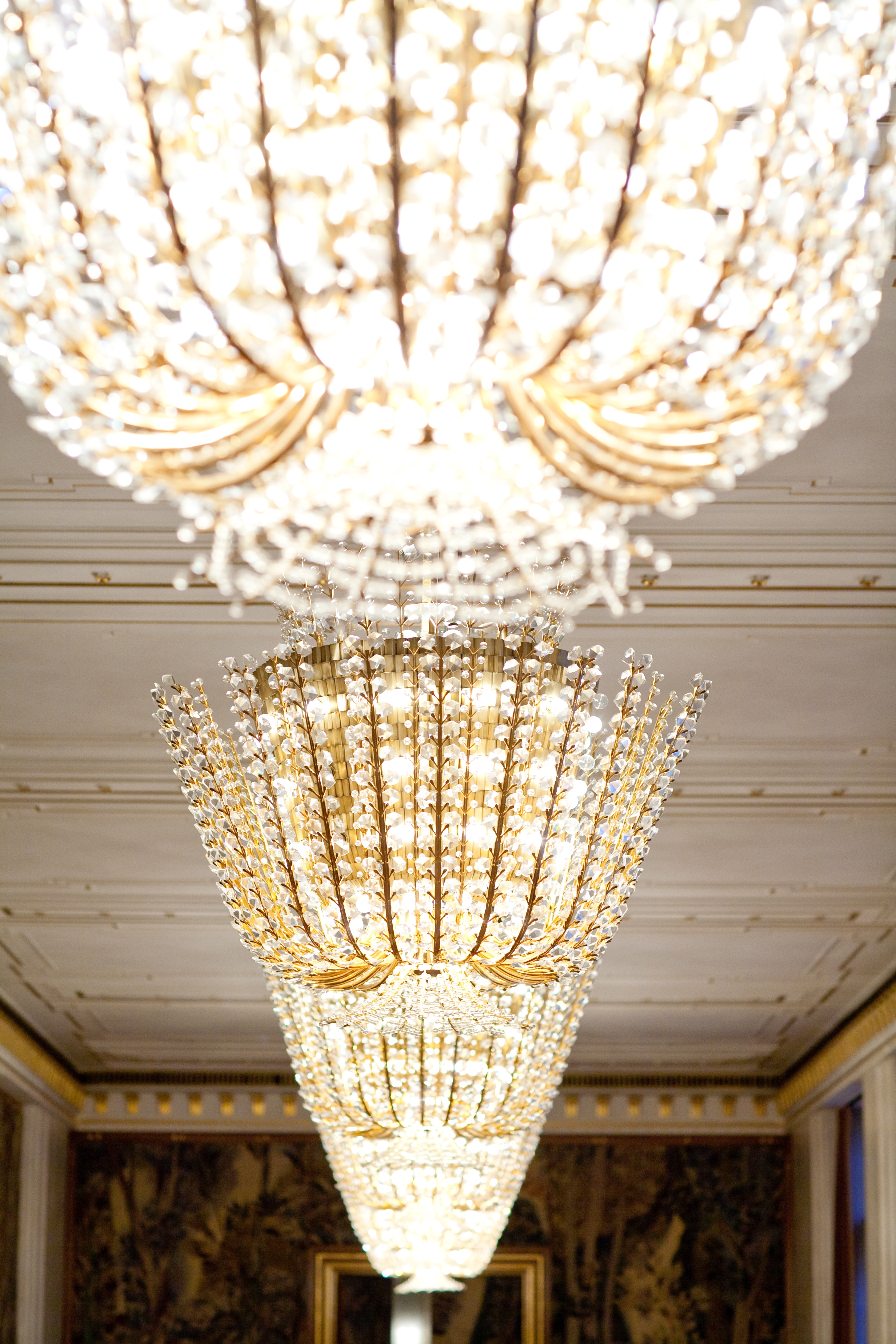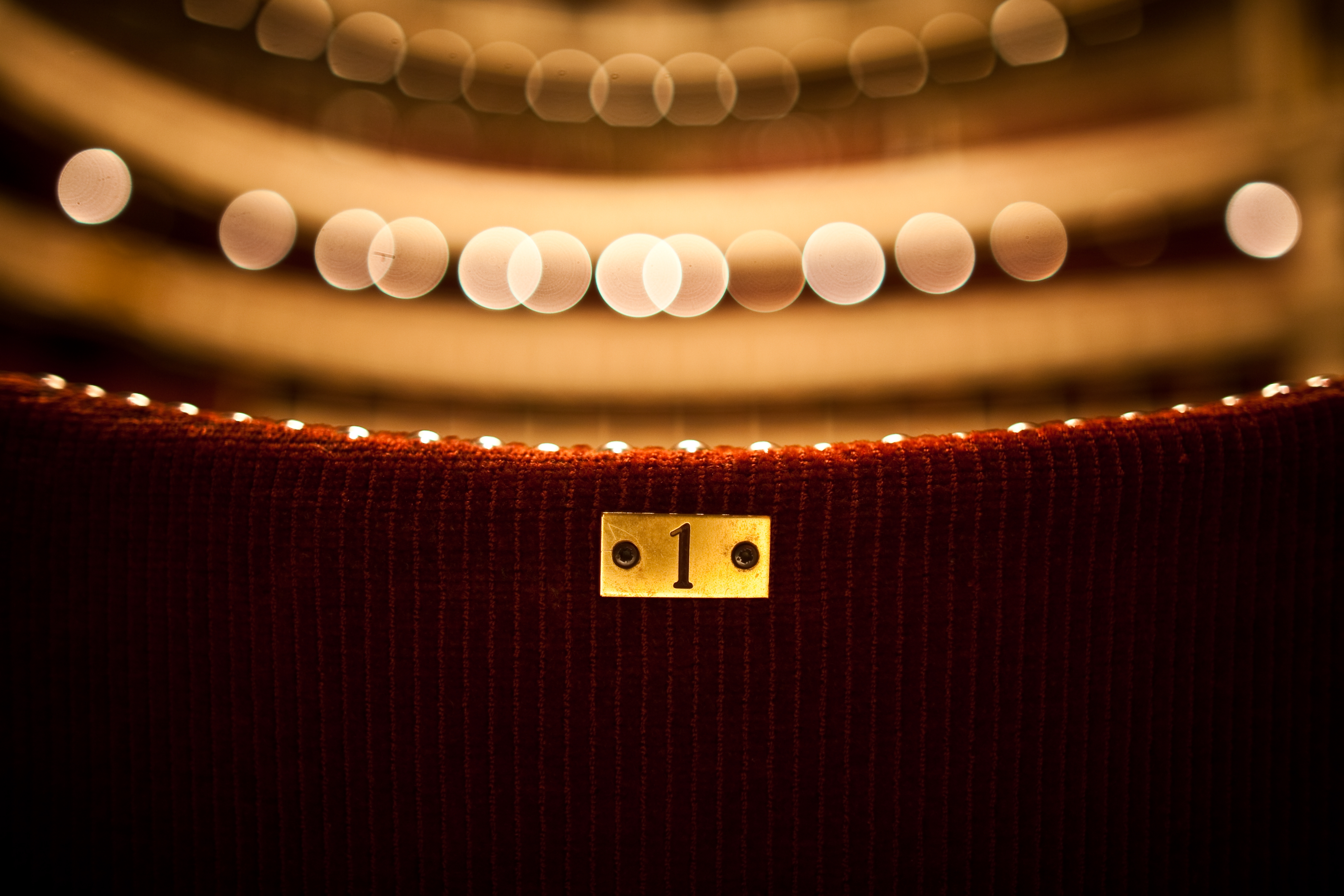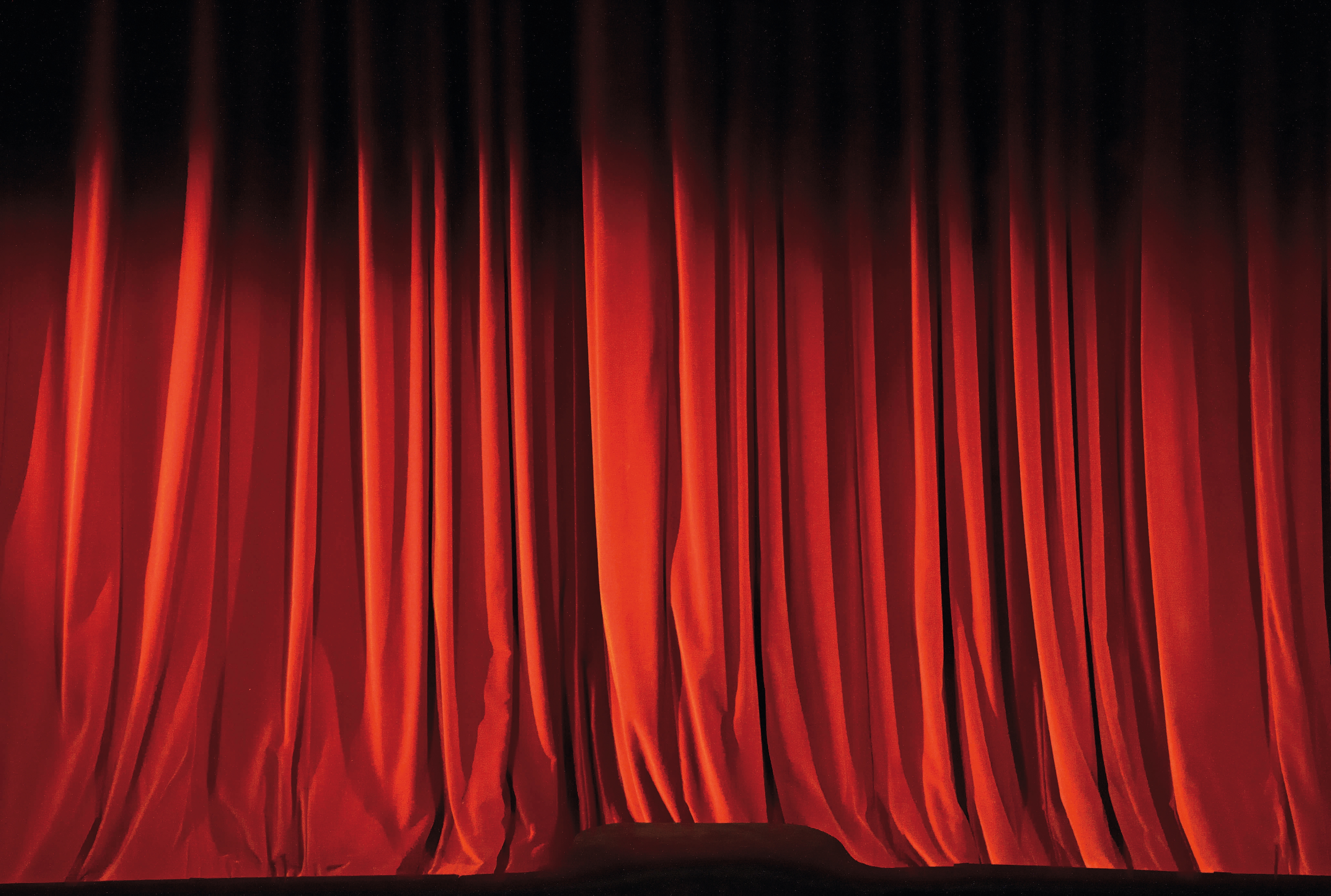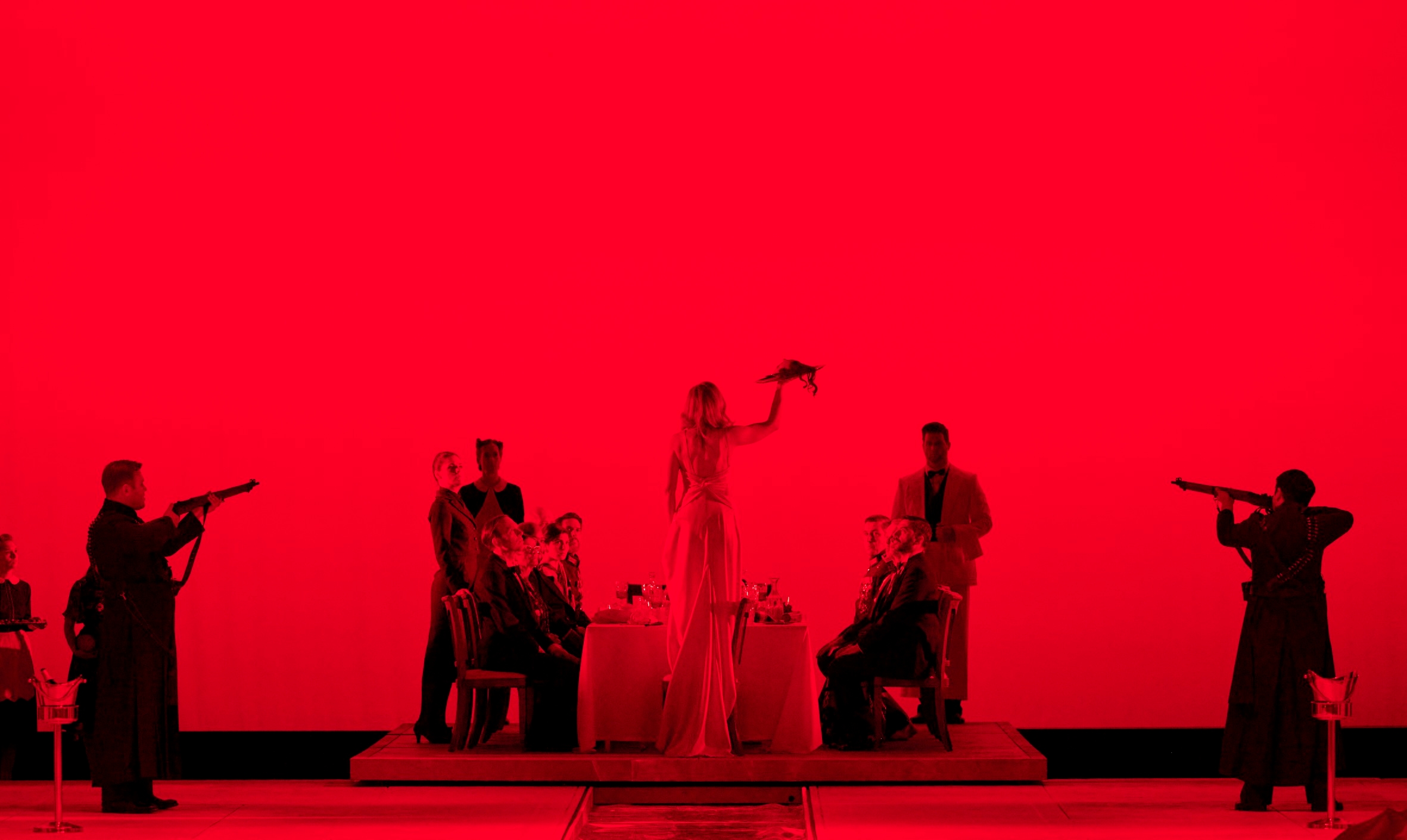
Salome
Storyline
The tetrarch Herod celebrates his birthday with a select group of guests. Two soldiers and the centurion Narraboth are guarding the prisoner Jochanaan. Narraboth is in love with Herod's stepdaughter Salome. He ignores the page's warnings. The prophet's voice is heard from the dungeon. He announces the arrival of the Messiah.
Disgusted by her stepfather's intrusiveness, Salome leaves the table. She listens to the prophet's admonitions and wants to see him. She persuades Narraboth to defy the tetrarch's express prohibition and fulfill her wish.
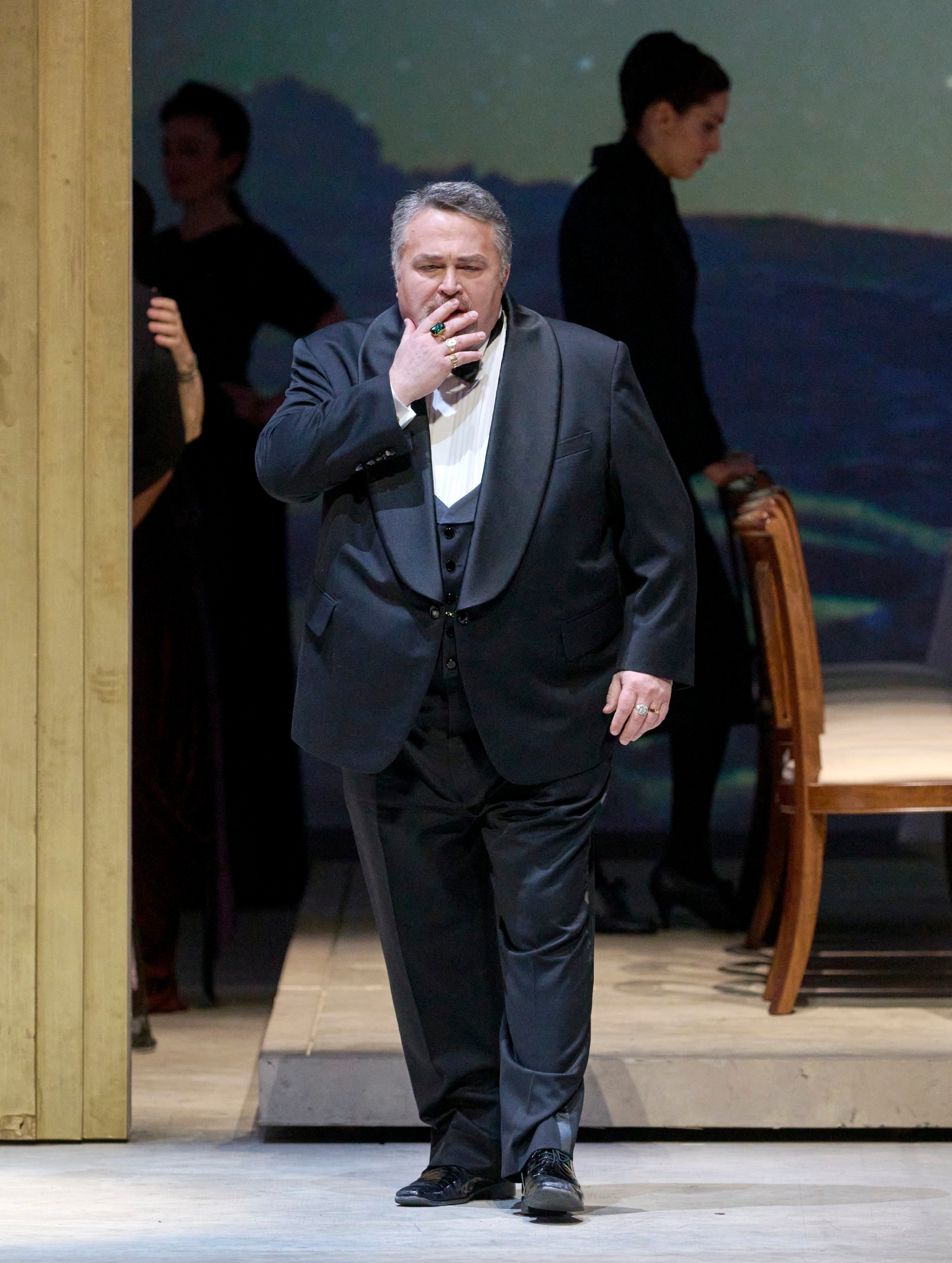
Jochanaan appears before Salome. Without paying any attention to her at first, he accuses her stepfather of an incestuous marriage to her mother Herodias. The strange man awakens Salome's longing and desire. She is overcome by the desire to touch his hair and body and kiss his mouth. Her rapture drives Narraboth to suicide. The prophet rejects Salome, saying that there is only one person who can save her: Jesus of Nazareth. When Salome does not let go of Jochanaan, he curses her and retreats to his prison.

The Tetrarch appears in search of Salome. Once again, the prophet's warning voice can be heard. Herodias demands that he be handed over to the Jews. Herod resists because he considers Jochanaan to be a holy man, a view that provokes a fierce dispute among the Jews: while some see him as a charlatan, the Nazarenes revere him as the harbinger of salvation.

Herod asks Salome to dance for him. She only agrees after he has sworn an oath to fulfill her every wish as a reward. Salome dances and demands the head of Jochanaan. The horrified Herod offers her the most precious treasures, but Salome insists on her demand. She is lost in the sight of the severed head. When she finally kisses the prophet's bloody mouth, Herod orders her to be killed.
Due to explicit depictions of violence and clearly recognizable abuse by association, we recommend attending the performance only from the age of 16.
The young Salome actresses and their parents were accompanied throughout the rehearsals by the Vienna State Opera's child welfare team. Together with the director, they worked out how the subject matter dealt with in the play could be presented in a child-friendly way with the participation of young actors.
»I don't know what I'm going to say before the actual rehearsals start. Because that depends on the actors. They give me the energy from which my performance emerges. I'm just the cartographer, it's the singers who enter the thicket of the forest and penetrate it. You also have to allow for chance. Chance is a great dramaturge. Now, three weeks after the start of rehearsals, I am - perhaps - beginning to understand. Theater is not a picture, but something alive. You can only understand it by experiencing it.« (Cyril Teste)
For this production, we recommend a minimum age of 14.
»An essential aspect of this work, which you literally notice at first glance, is the large, widely differentiated orchestral apparatus. This enables an incredible palette of shades and the entire breadth of sound techniques. Thanks to this orchestra, Strauss creates a great atmospheric magic; just imagine the sultry evening mood, the »oriental« coloring, the sound images. He uses the celesta or harps, for example, but also many solo strings, a rich selection of different wind instruments, especially clarinets - a whole battalion - and also divided strings, some of which use different techniques. Last but not least, there is an incredible percussion section, including the glockenspiel and the very important xylophone. And Strauss tries to draw new timbres out of these instruments, ones that didn't exist before.« (Philippe Jordan)
The opera director Gustav Mahler, who was so important for Vienna, was deeply enthusiastic about Salome (»It is a very ingenious, very powerful work that is definitely one of the most significant works of our time! There is a volcano working and living under a lot of rubble, an underground fire - not just fireworks!«) and wanted to bring the work to the Vienna Court Opera. But the censors thwarted his plans and banned the opera due to »moral« concerns. It was not until 1918 that Salome celebrated its premiere at the Vienna State Opera.



